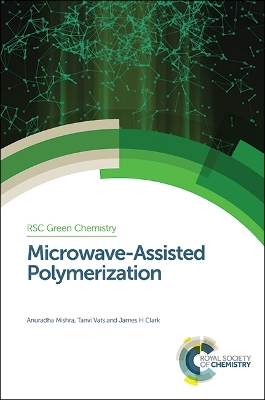Green Chemistry
2 primary works
Volume 35
Microwave-Assisted Polymerization
by Anuradha Mishra, Tanvi Vats, and James H Clark
This book provides comprehensive coverage of microwave-assisted polymerization. The first chapter introduces readers to the theory behind the accelerating effects of microwaves on chemical reactions and covers the types of commercial microwave reactors being used for synthesis and processing of polymers that are available on the market. Subsequent chapters are organised by type of reaction, including radical homo and co-polymerizations, step growth polymerization and peptide synthesis. Importantly, analysis of processes and product properties in comparison with conventional methods is also detailed.
This book will be a valuable resource for green chemists and polymer scientists and engineers who want to develop sustainable processes.
Volume 49
Sustainable Solvents
by James H Clark, Andrew Hunt, Corrado Topi, Giulia Paggiola, and James Sherwood
Solvents are ubiquitous throughout the chemical industry and are found in many consumer products. As a result, interest in solvents and their environmental impact has been steadily increasing. However, in order to achieve maximum integration of new green solvents into the relevant chemical sectors, clarification of the social, economic, and environmental implications of solvent substitution are needed. This book explores the solvent life cycle, highlighting the challenges faced at various points, from production, through the supply-chain and downstream use to end-of-life treatment. It also discusses the potential benefits that a green chemistry and bio-based economy approach could bring. The current state-of-the-art of green solvents is evaluated along these lines, in addition to reviewing their applications with an appreciation of sustainability criteria. Providing a critical assessment on emerging solvents and featuring case studies and perspectives from different sectors, this is an important reference for academics and industrialists working with solvents, as well as policy-makers involved in bio-based initiatives.

